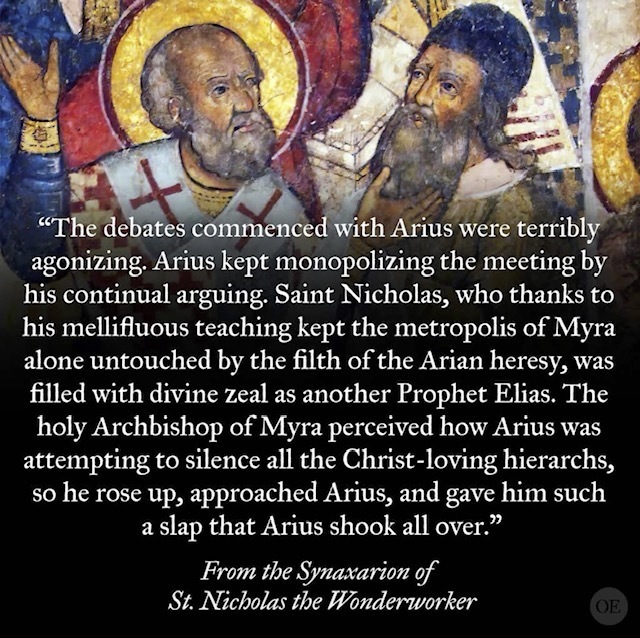Good morning! As Christmas approaches, you're bound to see memes on social media with references to the legend that St. Nicholas struck the heretic Arius at the Council of Nicaea. I've heard this for years, but I could never find the primary source on this - in other words, what's the earliest reference to the story and where does it come from?
As a patristics scholar, I knew there was nothing about it in any document from the early Church. So, keeping in mind that the Council of Nicaea was in 325 AD (and by the way, I think it is true that St. Nicholas of Myra, the real St. Nick, was actually there at the council) - there was no reference to the great saint giving the great heretic the opportunity to turn the other cheek until the middle ages.
Well, with the help of a Eastern Orthodox friend, I found the reference. It's from a story of the life of St. Nicholas that's included in a medieval collection of lives of the saints called the Synaxarion. Here's the original excerpt:

I mentioned in The Journey that I wrote a song based on Isaiah 2, which is one of my favorite OT passages:
In days to come, the mountain of the Lord’s house
shall be established as the highest mountain, and raised above the hills.
All nations shall stream toward it. Many peoples shall come and say:
“Come, let us go up to the Lord’s mountain, to the house of the God of Jacob, That he may instruct us in his ways, and we may walk in his paths.” For from Zion shall go forth instruction, and the word of the Lord from Jerusalem.
He shall judge between the nations, and set terms for many peoples.
They shall beat their swords into plowshares, and their spears into pruning hooks; One nation shall not raise the sword against another, nor shall they train for war again. House of Jacob, come, let us walk in the light of the Lord!
I hope you like the song!












